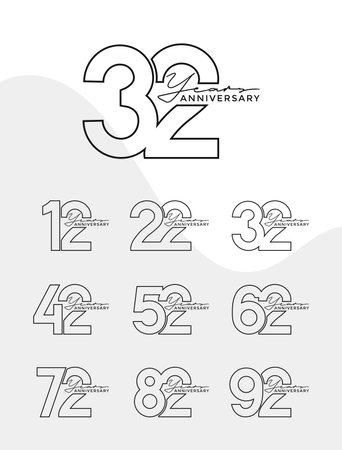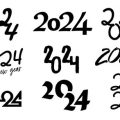1. Understanding the Concept of the Day Master
If you’re new to Bazi, also known as the Four Pillars of Destiny, one of the first things you’ll hear about is the “Day Master.” In Chinese astrology, your Day Master is a crucial part of understanding your personality, strengths, and life path. But what exactly is it, and why do so many people focus on it when reading a Bazi chart?
What Is the Day Master?
The Day Master refers to the Heavenly Stem of your Day Pillar in a Bazi chart. Unlike Western astrology that centers around sun signs, Bazi uses four pillars—Year, Month, Day, and Hour—to create a complete picture. Each pillar is made up of two elements: a Heavenly Stem and an Earthly Branch. The stem sitting at the top of your Day Pillar is your Day Master.
Origins and Cultural Significance
The concept of the Day Master comes from ancient Chinese metaphysics. In this system, everything in nature—including people—can be described using five elements: Wood, Fire, Earth, Metal, and Water. Your Day Master reveals which element best represents your core self. It’s not just a random choice; it’s believed to show how you interact with the world and how others see you.
Why Is the Day Master So Important?
While each pillar in Bazi offers insights into different aspects of your life (such as family background or career), the Day Master stands out because it represents you. Think of it as your astrological “main character.” Here’s a simple breakdown:
| Pillar | Represents |
|---|---|
| Year | Ancestry, early environment |
| Month | Workplace, parents, career foundation |
| Day (Day Master) | Yourself (core personality) |
| Hour | Children, ambitions, later life |
The Role of the Five Elements in Your Personality
Your Day Master can be any one of the five elements (and their Yin or Yang variations), each carrying unique qualities:
| Element | Main Traits (American English) |
|---|---|
| Wood (Yang/Yin) | Growth-focused, adaptable, generous or flexible |
| Fire (Yang/Yin) | Passionate, outgoing, energetic or warm-hearted |
| Earth (Yang/Yin) | Reliable, grounded, nurturing or supportive |
| Metal (Yang/Yin) | Loyal, determined, disciplined or refined |
| Water (Yang/Yin) | Clever, resourceful, sociable or intuitive |
Why Focus on the Day Master First?
If you want to understand yourself better through Bazi—whether for personal growth or making decisions—the Day Master is where you start. It acts as the anchor for all other elements in your chart and shapes how other influences play out in your life story.
2. Gathering and Preparing Your Birth Data
Before you can identify and analyze your Day Master in Bazi, the first step is to gather the right birth information. In Chinese metaphysics, these details are crucial for generating your Four Pillars chart, also known as BaZi or Eight Characters. Here’s what you’ll need:
What Birth Details Are Required?
You will need the following specific information:
| Birth Detail | Description |
|---|---|
| Date of Birth | The exact month, day, and year you were born (e.g., July 4, 1990) |
| Time of Birth | The precise time you were born, ideally down to the minute (e.g., 10:15 AM). If you don’t know the exact time, try to get as close as possible. |
| Location of Birth | The city and country where you were born. This helps adjust for local time zones and daylight saving if needed. |
Why These Details Matter
Bazi calculations rely on converting your Western date and time of birth into the Chinese lunar calendar system. Even small differences in time or location can shift your Four Pillars, so accuracy is important for a reliable reading.
Trusted Online Bazi Calculators Used in the U.S.
You don’t have to do these conversions by hand! There are several user-friendly online calculators popular among Americans interested in Bazi:
| Website/Resource | Features | Notes |
|---|---|---|
| bazi-calculator.com | Free chart generator; English interface; easy input fields for Western dates/times and locations. | Widely used among beginners; suitable for U.S. users. |
| YourChineseAstrology.com BaZi Calculator | Simple to use; offers both chart output and basic explanations; English support. | Popular with U.S.-based enthusiasts and students. |
| Master Sean Chan BaZi Calculator | User-friendly layout; clear Four Pillar breakdowns; accepts U.S. birth info formats. | Good for visual learners wanting a clean chart display. |
TIPS FOR ACCURATE INPUT:
- If your birth certificate lists “Standard Time,” double-check if daylight saving was in effect on your birthday in your state or city.
- Always use your official place of birth, not where you currently live.
- If unsure about your exact birth time, some calculators let you try different hours to see how much it affects your Four Pillars chart.
![]()
3. Identifying Your Day Master
How to Find Your Day Master in a Bazi Chart
In Bazi (also known as Four Pillars of Destiny), your “Day Master” is the Heavenly Stem found in the Day Pillar of your birth chart. It represents your core personality and fundamental nature, similar to your Sun sign in Western astrology but much more personalized. To get started, you’ll need your complete birth date (year, month, day, and time). There are several online Bazi calculators available—just make sure you select one that provides the full Bazi chart with all four pillars clearly labeled.
Navigating Your Bazi Chart
Your Bazi chart consists of four columns (Year, Month, Day, and Hour). Each column has two rows: the top row shows the Heavenly Stem and the bottom row shows the Earthly Branch. The Day Master is the Heavenly Stem located at the top of the Day Pillar column. Here’s an example:
| Pillar | Heavenly Stem | Earthly Branch |
|---|---|---|
| Year | Yang Metal (Geng) | Tiger (Yin) |
| Month | Yin Wood (Yi) | Rabbit (Mao) |
| Day | Yang Fire (Bing) | Dragon (Chen) |
| Hour | Yin Water (Gui) | Snake (Si) |
In this sample chart, the Day Master is Yang Fire (Bing), which you find at the top of the Day column.
The Ten Heavenly Stems and Their Meanings
The Day Master will always be one of the Ten Heavenly Stems. These stems are combinations of Yin and Yang energy with each of the Five Elements. Heres a quick reference:
| Element | Yin Stem | Yang Stem |
|---|---|---|
| Wood | Yi Wood | Jia Wood |
| Fire | Ding Fire | Bing Fire |
| Earth | Ji Earth | Wu Earth |
| Metal | Xin Metal | Geng Metal |
| Water | Gui Water | Ren Water |
The Importance of Yin vs. Yang and the Five Elements in Your Day Master
The concept of Yin and Yang describes opposite but complementary forces—Yin is receptive and soft, while Yang is active and strong. Every element in Chinese metaphysics comes in both Yin and Yang forms. For example, Bing Fire (Yang) is like the sun—outgoing and powerful—while Ding Fire (Yin) resembles candlelight—gentle and warm.
The Five Elements—Wood, Fire, Earth, Metal, and Water—each have their own set of qualities that describe how you interact with life:
| Element | Main Qualities/Keywords (US culture friendly) | Yin Type Example (Soft/Introvert) | Yang Type Example (Bold/Extrovert) |
|---|---|---|---|
| Wood | Growth, creativity, planning | Caring friend who listens well | Pioneer or leader who inspires others |
| Fire | Passion, enthusiasm, charisma | Candlelight warmth at home | The spotlight on stage |
| Earth | Loyalty, stability, dependability | The supportive team player | The reliable decision-maker |
| Metal | Courage, precision, discipline | An artist with attention to detail | A coach who sets clear rules |
| Water | Wisdom, adaptability, intuition | A thoughtful writer or counselor | An entrepreneur who goes with the flow |
Your unique combination of element and polarity shapes how you show up in relationships, work environments, and even how you recharge after a busy day. By identifying your Day Master in your Bazi chart—and understanding whether it’s Yin or Yang—you can start to recognize your personal strengths and natural style.
4. Interpreting the Meaning of Your Day Master
Once youve identified your Day Master in Bazi, its time to dig deeper and see what it reveals about you. Think of your Day Master like your personal “core energy”—kind of like your sun sign in Western astrology, but with a unique East Asian twist. Lets break down what each Day Master means using everyday American experiences and references you can relate to.
Understanding Each Day Master
| Day Master | Main Traits | American Culture Comparison | Possible Weaknesses |
|---|---|---|---|
| Yang Wood (Jia) | Strong, upright, dependable, growth-oriented | The reliable oak tree in your backyard or the solid team captain who always shows up for practice | Can be stubborn, inflexible, sometimes too blunt |
| Yin Wood (Yi) | Adaptable, creative, gentle, resourceful | The ivy that climbs anywhere or the artistic friend who finds beauty in everything | Might avoid confrontation, can be indecisive or overly sensitive |
| Yang Fire (Bing) | Passionate, charismatic, energetic, inspiring | The person leading a pep rally or the friend who lights up every BBQ party | May burn out quickly, can be dramatic or overwhelming at times |
| Yin Fire (Ding) | Warm, thoughtful, insightful, subtle leader | The cozy glow of fairy lights at a backyard gathering or the caring counselor at summer camp | Tends to worry easily, can be hesitant or lack confidence under pressure |
| Yang Earth (Wu) | Loyal, stable, grounded, responsible | The dependable family member who hosts Thanksgiving every year or the trustworthy coworker everyone relies on | Might resist change, can be slow to adapt or overly cautious |
| Yin Earth (Ji) | Nurturing, supportive, practical, detail-oriented | The community volunteer organizing a food drive or the friend who always brings snacks to the road trip | Can get bogged down by details or have trouble saying no to others’ needs |
| Yang Metal (Geng) | Courageous, direct, disciplined, strong-willed | The police officer keeping order at a parade or the athlete who never gives up in a game | Might seem harsh or too competitive; struggles with flexibility in group settings |
| Yin Metal (Xin) | Eloquent, refined, perceptive, stylish | The jewelry designer with an eye for trends or the poised speaker at a graduation ceremony | Can be self-critical or worry too much about appearances and approval from others |
| Yang Water (Ren) | Resourceful, ambitious, adaptable, adventurous | The entrepreneur starting a tech company in Silicon Valley or the friend planning spontaneous weekend getaways to new cities | Might take unnecessary risks or struggle with commitment and consistency |
| Yin Water (Gui) | Empathetic, intuitive, flexible, diplomatic | The supportive therapist helping others through tough times or the peacemaker during family debates over Thanksgiving dinner | Tends to internalize stress; may have trouble asserting boundaries when needed |
Making Sense of Your Day Master in Everyday Life
Your Day Master shapes how you approach work projects, friendships, problem-solving—and even how you relax after a busy week. For example:
- If youre Yang Wood (Jia), you might be the one volunteering to organize your neighborhood block party because you love bringing people together and seeing things grow.
- If youre Yin Fire (Ding), you could be that friend who quietly checks in on everyone after a stressful day at work—your warmth shines in small but meaningful ways.
- A Yang Water (Ren) type might thrive as an independent contractor or gig worker where adaptability is key—always ready for the next adventure.
Using This Insight Every Day
Your Day Master isnt about putting yourself into a box—its about understanding where your natural strengths lie and how to make life easier by working with your personality instead of against it. Next time youre facing a challenge at work or dealing with a family drama around the dinner table, think about how your Day Masters qualities can help you navigate it like a pro.
5. Analyzing the Environment of Your Day Master
Once you’ve identified your Day Master in Bazi, the next important step is to look at the environment around it. In Bazi, this environment is shaped by the other elements and stems found in your birth chart. Each of these surrounding elements can either support, challenge, or neutralize your Day Master, influencing how you express yourself and interact with the world—much like how our personalities are shaped by family, friends, and society here in America.
Understanding Elemental Interactions
Your Day Master (DM) represents your core self. The strength and influence of your DM depend on its relationship with the other four pillars (Year, Month, Hour, and the remaining parts of the Day Pillar). Let’s break down how different elemental relationships can play out:
| Relationship | What It Means for You | Everyday Example (American Life) |
|---|---|---|
| Supporting Elements | Boosts your natural abilities, makes life feel smoother | Having supportive coworkers or family who encourage your growth |
| Controlling Elements | Keeps you grounded, but too much can feel overwhelming | A boss with strict rules that help you stay organized—but too many rules may cause stress |
| Weakened/Draining Elements | Makes you feel tired or scattered; challenges to overcome | Dealing with constant distractions like social media or a noisy neighborhood |
| Resource Elements | Nourishes and strengthens your DM over time | Pursuing education or hobbies that build confidence and skills |
| Output Elements | Encourages creativity and sharing ideas; too much can lead to burnout | Taking on leadership roles or creative projects at work or school |
Practical Tips for Self-Development Based on Your Chart’s Environment
- If your Day Master is strong: Try taking on new challenges or leadership positions—just be mindful not to dominate group settings.
- If your Day Master feels weak: Focus on building supportive routines and seek out mentors. Don’t be afraid to ask for help when things get overwhelming.
- If there’s a lot of control energy: Practice self-care and set healthy boundaries to avoid feeling micromanaged—think “work-life balance.”
- If resource elements are lacking: Invest in learning new skills or connecting with positive role models who inspire growth.
- If output elements are high: Channel this energy into creative outlets like art, music, volunteering, or community activities to avoid burnout.
Relationship Insights: Connecting Bazi with American Social Life
The environment of your Day Master also gives clues about how you relate to others. For example:
- A supportive environment: You’ll likely have an easier time making friends and networking—great for building strong communities at school or work.
- A challenging environment: You may need to develop resilience and communication skills. Think about using resources like counseling or mentorship programs common in American workplaces and schools.
- An environment rich in output elements: This could make you a natural team leader or creative thinker—valuable traits whether you’re pitching ideas at a meeting or organizing a local event.
Your Next Steps: Applying Bazi Wisdom Every Day
Bazi isn’t just about theory—it’s meant to guide personal growth. Pay attention to which elements surround your Day Master and use these insights as a roadmap for improving both self-awareness and relationships. Whether it’s nurturing existing strengths or working through challenges, understanding your chart’s environment can empower you to thrive in all areas of American life—from career planning to family dynamics.


